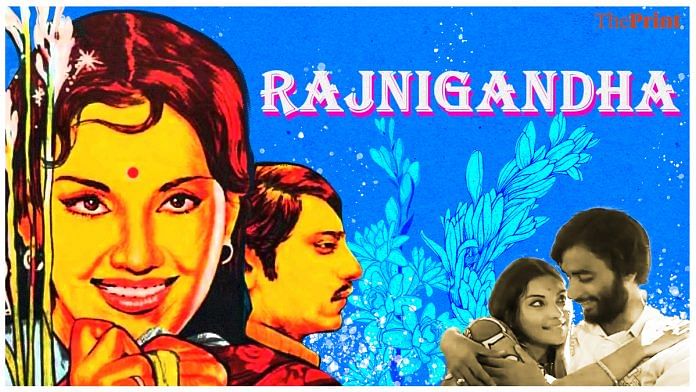New Delhi: In an interview she gave in 1997, Lata Mangeshkar had said about Salil Chowdhury, “Over the course of my life I have worked with over a hundred music directors. Of these, perhaps only ten understood both music and the cinema. And of these ten, Salil was the foremost.”
Chowdhury’s music spoke to the audience, bringing a film to life. A poet, lyricist, playwright, and composer, Chowdhury was a man of many talents, but music was his first love. Describing his relationship with music, Chowdhury had once said, “Music was never a flash of light to me. From my childhood till now, whatever I have learned is due to serious study, practice, listening and analysis.”
Films for which he composed the music, including classics Do Bigha Zameen, Madhumati, Anand and Chhoti Si Baat, are known as much for their melodies as they are for their cinematic brilliance. Another such gem from the 1970s is Basu Chatterjee’s Rajnigandha, which had only two songs, but both still play in the audience’s mind nearly 50 years later.
On Salil Chowdhury’s 26th death anniversary, ThePrint revisits this slice-of-life take on love and relationships, starring Amol Palekar and Vidya Sinha.
Also read: Pyar Kiye Jaa, classic comedy that got Mehmood his first Filmfare as comedian
Chronicle of conflicted love
Released in 1974, Rajnigandha is based on Hindi author Mannu Bhandari’s story Yehi Sach Hai.
The film opens with Deepa (Vidya Sinha), alone on a train journey. She misses her alighting station, and in desperation, decides to get down at the next one. As soon as the train starts pulling out of the station, however, she wants to board the train again, but is unable to. Frantic, Deepa wakes up to find herself in her room at home.
Deepa’s dream is symbolic of her internal conflict. A young, educated and independent woman, she is in two minds about her choice of partner.
Deepa is a PhD student living in Delhi, and is in a relationship with Sanjay (Amol Palekar), a middle-class private sector employee. The two are almost ready to tie the knot, but Sanjay’s often careless behaviour, and lack of punctuality, raises doubts in Deepa’s mind about their relationship. In his own way, though, Sanjay cares deeply for Deepa.
Meanwhile, Deepa is called for a job interview to Bombay, where she reconnects with her old beau, Navin (Dinesh Thakur). Even though Navin had once broken her heart, she finds herself attracted to him again. Navin, to her surprise, appears to be paying her more attention than Sanjay: He always meets her on time, and showers her with compliments.
After a week-long stay in Mumbai, Deepa returns to Delhi, but finds herself thinking often of Navin, and questioning her decision to be with Sanjay. The rest of the film is about how Deepa sorts out her conflicted feelings and makes her choice.
Also read: 5 songs to remember Shakeel Badayuni, Hindi cinema’s romantic poet
A musical challenge
This was Vidya Sinha’s first film, and Amol Palekar’s first in Hindi. Both appear very comfortable in front of the camera and blend perfectly into Basu Chatterjee’s realistic, middle-class world. Through its depiction of the protagonist’s conflicted and confused emotions, the film leaves the audience wondering about the nature and essence of love. Is it just about romance, or stability; is it driven by passion, or rooted in commitment; is it sugar-coated compliments or silent understanding?
The only two songs in the film, Kai baar yun bhi dekha hai and Rajnigandha phool tumhare, also play an integral role in driving the story forward.
The title song was sung by Lata Mangeshkar, about whom Chowdhury had said, “If I knew Lata was going to sing my composition, I would go on to make it as complex as possible. It was like a challenge, a game between us, but she never failed. Chhoti Si Baat, Rajnigandha, Anand, Annadata, Mere Apne, Maya, Chhaya, Parakh… listen to her songs… no one can sing my complex compositions like her.”
The tunes for the songs were also used by Chowdhury for many subsequent songs in different languages, on which he said, “…Music is a universal language. That Rajnigandha song Kai baar yun bhi dekha hai… I used it in a Malayalam film in Yesudas’ voice. I used it in Bangla also, and they were hits.”
(Edited by Poulomi Banerjee)
Also read: 5 songs and 5 moods to remember Khayyam, Bollywood’s versatile music composer



